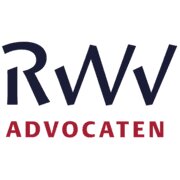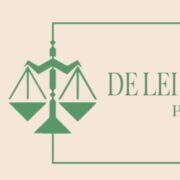Best Job Discrimination Lawyers in Leiden
Share your needs with us, get contacted by law firms.
Free. Takes 2 min.
List of the best lawyers in Leiden, Netherlands
About Job Discrimination Law in Leiden, Netherlands
Job discrimination occurs when an employer treats an employee or job applicant unfairly based on characteristics such as gender, age, race, religion, disability, sexual orientation, or pregnancy, rather than on individual merit or job-related skills. In Leiden, as in the rest of the Netherlands, such behavior is strictly prohibited by law. The Dutch legal system provides robust protections for workers against discrimination in the workplace, whether during hiring, employment, or termination. Leiden, being an academic city with a diverse workforce, emphasizes equal opportunities for all individuals, regardless of background.
Why You May Need a Lawyer
Facing job discrimination can be a stressful experience, especially when it affects your livelihood or career prospects. You may require legal assistance if:
- You believe you have been denied a job or promotion due to discriminatory reasons.
- You experience harassment or unequal treatment at your workplace based on personal characteristics.
- Your contract was terminated under suspicious or unfair circumstances linked to your identity or background.
- You require advice on how to file a formal complaint against your employer or seek compensation.
- You are unsure about your rights and the evidence needed to prove discrimination.
- Your employer retaliates after you report suspected discrimination.
Local Laws Overview
Job discrimination in Leiden falls under Dutch national laws, in particular:
- Equal Treatment Act (AWGB) - This act prohibits discrimination based on race, religion, gender, sexual orientation, political opinion, and disability in employment and other areas.
- Working Conditions Act (Arbowet) - Requires employers to provide a safe and healthy work environment, free from harassment.
- Dutch Civil Code - Provides general protection for employees and the right to fair labor practices.
- Equal Treatment Commission (CGB) - Employees can seek advice or file complaints about unequal treatment.
Frequently Asked Questions
What counts as job discrimination in Leiden?
Job discrimination includes unfair treatment based on protected characteristics such as race, gender, age, religion, disability, or sexual orientation. Examples include unequal pay, denial of promotion, or harassment.
How do I prove job discrimination?
You should document incidents, gather relevant emails or messages, note witness statements, and keep records of any unfair treatment. Consulting a lawyer will help determine the best way to build your case with the available evidence.
Can I file a discrimination complaint anonymously?
In many cases, complaints can be made confidentially, especially when approaching the Equal Treatment Commission. However, some investigations may eventually require your identity to be disclosed.
What protection do I have against retaliation for reporting discrimination?
Dutch law prohibits employers from retaliating against employees who report discrimination. If retaliation occurs, additional legal protections and remedies are available.
What is the process for filing a discrimination claim?
You can file a complaint internally with your employer, contact the Equal Treatment Commission, or approach a lawyer to bring the matter before a court or labor mediation body.
Is there a time limit for making a claim?
Yes, there are statutory periods for bringing claims. It is generally advisable to act quickly, as waiting too long can affect your chances of success. Consult a lawyer as soon as possible for details.
Do I need to speak Dutch to pursue a claim?
While official procedures are in Dutch, legal advice and support are available in English. Many legal professionals in Leiden can assist non-Dutch speakers.
What compensation can I receive if my claim is upheld?
Possible outcomes include reinstatement, financial compensation, policy changes at your workplace, and in some cases, payment for emotional distress.
What if the discrimination happened during a job application?
Discrimination is illegal at any stage, including recruitment. You have the right to file a complaint if you believe a job application was unfairly rejected due to a protected characteristic.
Can foreigners and expatriates file discrimination claims?
Yes, the Dutch Equal Treatment Act applies to all employees and applicants in the Netherlands, including foreigners, expatriates, and international students.
Additional Resources
If you need further help, consider contacting:
- College voor de Rechten van de Mens (Netherlands Institute for Human Rights) - Offers advice and handles discrimination complaints.
- Juridisch Loket - Free legal advice service for residents.
- Trade Unions (Vakbonden) - Provide support and representation for their members.
- Local Municipality (Gemeente Leiden) - Can direct residents to appropriate legal or social resources.
- Dutch Bar Association (Nederlandse Orde van Advocaten) - Directory for finding qualified employment lawyers.
Next Steps
If you believe you have been a victim of job discrimination in Leiden:
- Document all incidents and collect any relevant evidence.
- Seek support from a trusted colleague, union representative, or HR department if possible.
- Contact an employment lawyer or use the services mentioned above for a case assessment.
- File a formal complaint with the Equal Treatment Commission or your employer, if appropriate.
- If unresolved, your lawyer can help you prepare and file a legal claim before a court or advise on mediation options.
Lawzana helps you find the best lawyers and law firms in Leiden through a curated and pre-screened list of qualified legal professionals. Our platform offers rankings and detailed profiles of attorneys and law firms, allowing you to compare based on practice areas, including Job Discrimination, experience, and client feedback.
Each profile includes a description of the firm's areas of practice, client reviews, team members and partners, year of establishment, spoken languages, office locations, contact information, social media presence, and any published articles or resources. Most firms on our platform speak English and are experienced in both local and international legal matters.
Get a quote from top-rated law firms in Leiden, Netherlands — quickly, securely, and without unnecessary hassle.
Disclaimer:
The information provided on this page is for general informational purposes only and does not constitute legal advice. While we strive to ensure the accuracy and relevance of the content, legal information may change over time, and interpretations of the law can vary. You should always consult with a qualified legal professional for advice specific to your situation.
We disclaim all liability for actions taken or not taken based on the content of this page. If you believe any information is incorrect or outdated, please contact us, and we will review and update it where appropriate.












